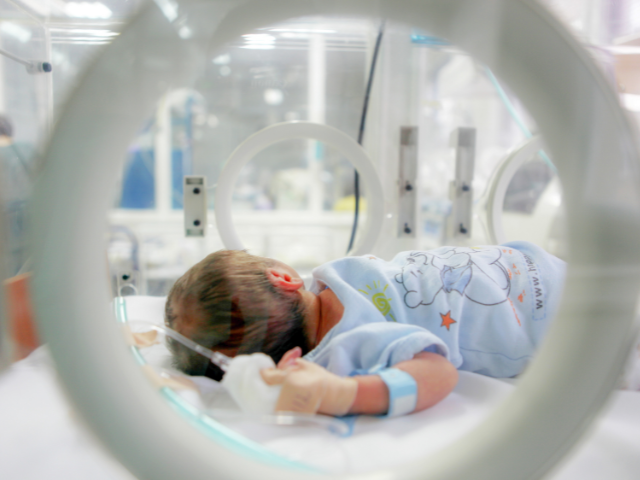Myth #1: You Cannot Bond With Your Baby
This could not be further from the truth! You will certainly be able to bond with your baby. The bonding will occur in a different setting than you probably imagined, but there are multiple ways to connect with your baby in the Neonatal Intensive Care Unit (NICU). Parents that are part of the NICU are very skilled at finding ways to bond with their babies. Take part in skin-to-skin or kangaroo care. Be present and participate in care times. This may look like changing their diaper, taking their temperature, bathing, or feeding them. Your baby knows your voice, so reading, singing, and talking to them is a great way to form an attachment.
Myth #2: Mothers of Premature Babies Could Have Avoided Preterm Birth
Parents feel a tremendous amount of guilt when it comes to their preterm delivery. Moms feel like failures and blame themselves for not protecting their little ones. The fact is, prematurity can happen to anyone, even when you “do everything right.” Two out of three preterm births have no known biological explanation. The causes of preterm births are not always known, and most of the time, preterm births happen spontaneously. Researchers do know that certain factors put some mothers at higher risk for preterm birth than others, and providers can input measures to delay the onset of preterm birth. Still, it does not entirely prevent this from happening. Chances are you did nothing to cause your premature delivery, and it can happen to anyone.
Myth #3: All Premature Infants Will Have Developmental Delays
Yes, babies born prematurely are at risk for developmental delays. The earlier babies are born, the higher their risk of developmental problems, but most premature infants usually develop. While in the NICU, teams of physical, occupational, and speech therapists will continually work with your preemie to encourage positive development. Avoid comparing your preemie’s growth to a term newborn’s because they will not align. Knowing your baby’s corrected age might alleviate any concerns you may have regarding your baby’s development.









